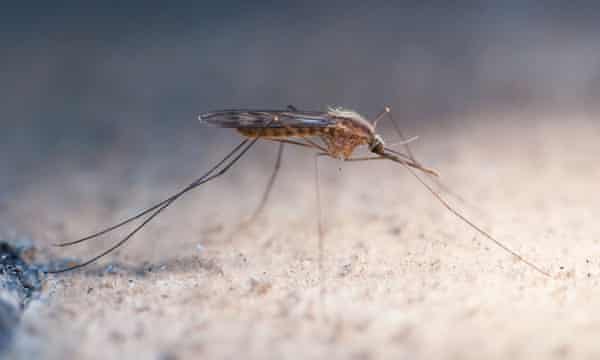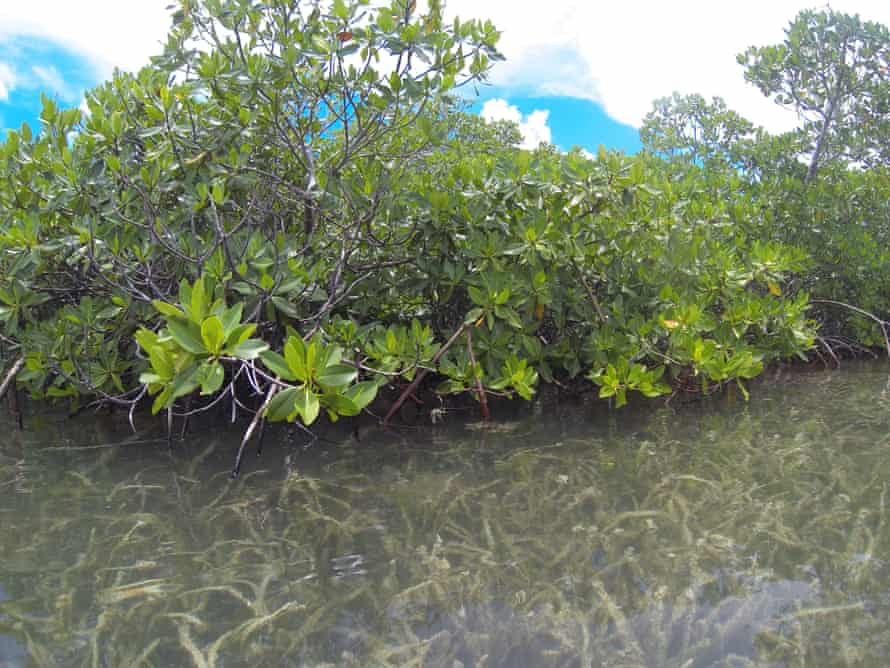How Is Climate Change Affecting Migration Patterns Of Animals
Global warming is reshuffling the ranges of animals and plants effectually the world with profound consequences for humanity, according to a major new analysis.
Ascent temperatures on land and bounding main are increasingly forcing species to migrate to libation climes, pushing affliction-conveying insects into new areas, moving the pests that attack crops and shifting the pollinators that fertilise many of them, an international team of scientists has said.
They warn that some movements will damage important industries, such as forestry and tourism, and that tensions are emerging between nations over shifting natural resources, such as fish stocks. The mass migration of species at present underway around the planet can also amplify climate change equally, for example, darker vegetation grows to replace sunday-reflecting snow fields in the Arctic.
"Human survival, for urban and rural communities, depends on other life on Earth," the experts write in their analysis published in the journal Science. "Climate change is impelling a universal redistribution of life on Earth."
This mass movement of species is the biggest for about 25,000 years, the peak of the final ice age, say the scientists, who represent more 40 institutions around the world. "The shifts will leave 'winners' and 'losers' in their wake, radically reshaping the pattern of man wellbeing … and potentially leading to substantial conflict," the squad warn. "Human society has still to appreciate the implications of unprecedented species redistribution for life on World, including for human lives."
Climate change driven by human greenhouse gas emissions is non just increasing temperatures, only as well raising ocean levels, the acidity of the oceans and making farthermost weather such as droughts and floods more frequent. All of these are forcing many species to migrate to survive.
"Land-based species are moving polewards by an average of 17km per decade, and marine species by 72km per decade" said Prof Gretta Pecl at the Academy of Tasmania in Australia, who led the new analysis.

In that location are many documented examples of individual species migrating in response to global warming and some examples of extinctions. But Pecl said: "Our study demonstrates how these changes are affecting ecosystems, man health and culture in the process."
The almost straight impact on humans is the movement of insects that deport diseases, such as the mosquitoes that transmit malaria shifting to new areas as they warm and where people may have petty amnesty. Another example is the north spread in Europe and North America of the animal ticks that spread Lyme disease: the Great britain has seen a tenfold rise in cases since 2001 equally winters get milder.
Nutrient production is also being affected as crops have to be moved to cooler areas to survive, such equally java, which volition demand to be grown at college, cooler altitudes, causing deep disruption to a global industry. The pests of crops will also motility, every bit will their natural predators, such as insects, birds, frogs and mammals.
Other resources are being affected, with a third of the land used for forestry in Europe set to become unuseable for valuable timber trees in the coming decades. Of import fish stocks are migrating towards the poles in search of libation waters, with the mackerel defenseless in Republic of iceland jumping from 1,700 tonnes in 2006 to 120,000 tonnes in 2010, prompting a "mackerel war" with neighbours in whose waters the fish had previously been.
The benefits to humans beingness provided past species, and the complex ecosystems they live in, are also at gamble. Mangroves, for example, are migrating polewards in Australia and in the southern The states, pregnant the storm protection and fish nurseries provided are existence lost in some places.

The shifting of animals and plants into new areas can sometimes lead to drastic changes, as those areas have not evolved with the incomers and lack natural defences. In Commonwealth of australia's seas, kelp forests are existence destroyed by an influx of tropical fish that eat them, threatening the important rock lobster trade.
The scientists likewise warn of feedback effects that can exacerbate climate change, citing the poleward spread of bark beetles in northern hemisphere forests. The beetles set on trees that may already be weakened past warmer, drier conditions, leading to more severe pest outbreaks and tree deaths. This in plough provides more than fuel for forest fires, releasing more planet-warming carbon dioxide.
"Climate-driven species redistributions shouldn't only exist a concern for conservation biologists – they should worry anybody," said Nathalie Pettorelli, at the ZSL Institute of Zoology in the UK, and i of the analysis team. "The world as a whole isn't adequately prepared to handle the range of issues emerging from species moving beyond local, national, and international boundaries."
She said plans to cope with climate change urgently needed to take these issues into business relationship and said everyone could play a office in collecting much needed data on shifting species. "Citizen science can really help," she said, with people reporting when they see new species in a region and some schemes are already ready.
Source: https://www.theguardian.com/environment/2017/mar/30/climate-change-global-reshuffle-of-wildlife-will-have-huge-impacts-on-humanity
Posted by: redmondthentent.blogspot.com

0 Response to "How Is Climate Change Affecting Migration Patterns Of Animals"
Post a Comment